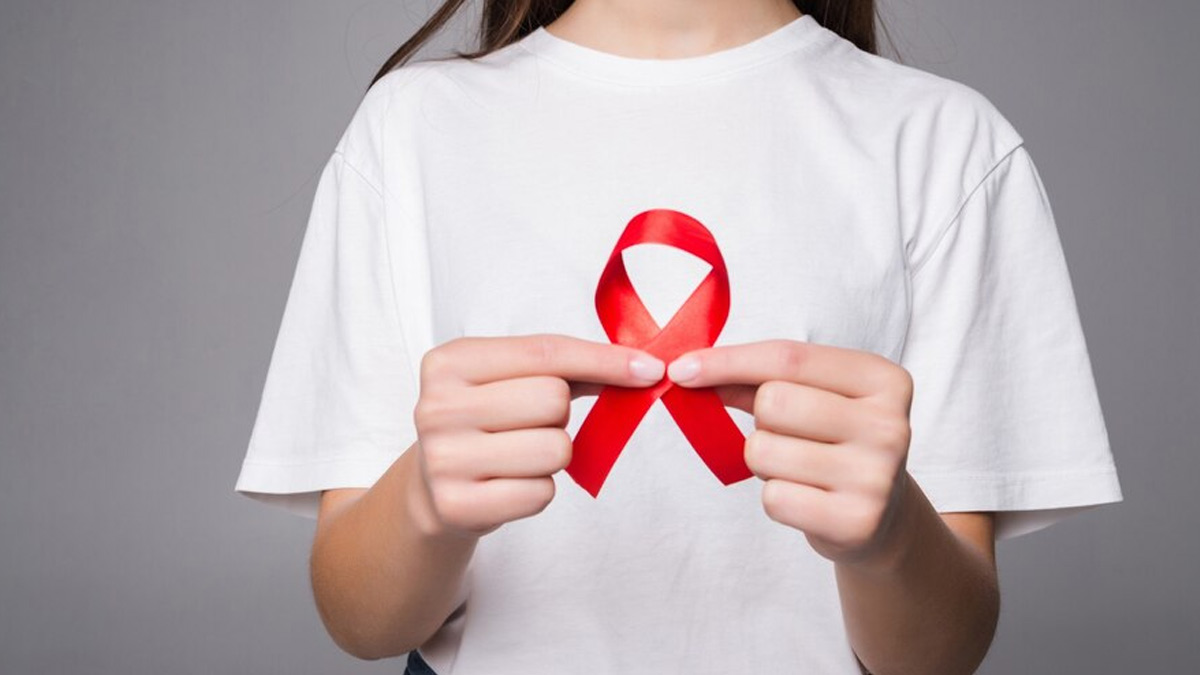
Acquired Immunodeficiency Syndrome (AIDS) is a severe and advanced stage of infection caused by the Human Immunodeficiency Virus (HIV). HIV attacks and weakens the immune system, leaving the body vulnerable to opportunistic infections and certain cancers. The early symptoms of HIV infection can vary and may resemble flu-like symptoms, including fever, fatigue, sore throat, and swollen lymph nodes. However, it's important to note that HIV symptoms can be mild or absent in the initial stages, and individuals may remain asymptomatic for years. In this article, Dr Shilpi Sachdev- Obstetrics & Gynecology, Apollo Cradle & Children’s Hospital, Moti Nagar- New Delhi shares important information about AIDS in women.
Table of Content:-
As the virus progresses and the immune system becomes further compromised, more severe symptoms may emerge, leading to the diagnosis of AIDS. These symptoms can include persistent fever, weight loss, chronic diarrhoea, and opportunistic infections. Early detection through testing and timely medical intervention are crucial for managing HIV and preventing its progression to AIDS. Regular testing, safe practices, and antiretroviral therapy play vital roles in HIV/AIDS prevention and care.
What are the specific tests to detect the early stage of AIDS?
According to Dr Sachdev, “The specific tests to detect the early stage of AIDS involve screening for the presence of antibodies to the Human Immunodeficiency Virus (HIV) in the blood. The most common initial test is the HIV antibody test, which can be conducted using rapid tests, enzyme immunoassays (EIAs), or Western blot assays. Additionally, nucleic acid tests (NATs) can directly detect the genetic material of the virus, providing early and accurate detection. Early diagnosis is crucial for timely intervention and effective management, as antiretroviral therapy can help control HIV and prevent its progression to Acquired Immunodeficiency Syndrome (AIDS). Regular testing is recommended for individuals at risk.”
Also Read: How HIV Can Be Prevented From Developing Into AIDS

How can women proactively reduce the risk of AIDS through lifestyle choices?
Women can proactively reduce the risk of AIDS through a range of lifestyle choices. Here are some suggestion by Dr Sachdev:
- Consistent use of condoms during sexual activity is a fundamental practice to prevent the transmission of HIV.
- Engaging in mutually monogamous relationships with partners who have tested negative for HIV reduces exposure.
- Regular testing and open communication about HIV status with sexual partners are crucial for informed decision-making.
- Avoiding the sharing of needles or other drug paraphernalia is essential, especially for those who inject drugs.
- Educating oneself and others about HIV/AIDS, including understanding high-risk behaviours, empowers women to make informed choices.
Furthermore, promoting overall health through a balanced diet, regular exercise, and avoiding substance abuse can contribute to a strong immune system, enhancing the body's ability to resist infections.
“Women should prioritise their well-being, stay informed, and actively engage in practices that safeguard their sexual health, forming a comprehensive approach to reducing the risk of AIDS. Regular medical check-ups and access to healthcare services also play a vital role in early detection and management of HIV,” adds Dr Sachdev.
Also Read: Expert Lists Symptoms of HIV/AIDS And How Long Can A Person Live With It

What specific healthcare measures should women prioritise to effectively manage and prevent the transmission of AIDS?
According to Dr Sachdev, women should prioritise specific healthcare measures to effectively manage and prevent the transmission of AIDS such as:
- Regular HIV testing is paramount, enabling early detection and timely intervention.
- Education about safe sex practices, including consistent and correct use of condoms, helps reduce transmission risks.
- For women at higher risk, considering pre-exposure prophylaxis (PrEP) in consultation with healthcare providers is an effective preventive measure.
- Accessing comprehensive reproductive healthcare, including screenings for sexually transmitted infections (STIs), contributes to overall well-being and reduces the risk of HIV transmission.
- Routine gynaecological examinations and vaccinations for other infections like Hepatitis B can also be protective.
- Additionally, engaging in open communication with healthcare professionals, particularly during family planning discussions, ensures that women receive appropriate guidance and support.
- Promoting overall health through a balanced lifestyle, including proper nutrition, regular exercise, and managing stress, strengthens the immune system.
Also Read: Symptoms And Stages Of HIV Infection
Women should prioritise self-care, stay informed about their sexual health, and actively participate in healthcare decision-making for effective AIDS management and prevention.
What role does comprehensive sexual education play in empowering women to make informed choices and reduce the risk of AIDS?
“It provides women with accurate information about sexual health, including details about HIV/AIDS transmission, prevention methods, and the importance of regular testing. This education fosters a deeper understanding of reproductive anatomy, contraception, and healthy relationships, enabling women to make informed decisions about their bodies and sexuality,” answers Dr Sachdev.
By addressing gender-specific issues and emphasising mutual respect, communication, and consent, comprehensive sexual education empowers women to navigate relationships confidently. It equips them with the knowledge to negotiate safer sex practices, such as the consistent and correct use of condoms, reducing the risk of HIV transmission. Moreover, sexual education helps destigmatize discussions around sexual health, encouraging women to seek preventive measures like pre-exposure prophylaxis (PrEP) when needed.
Dr Sachdev concludes by saying, “Comprehensive sexual education is a cornerstone for promoting reproductive autonomy, fostering healthy behaviours, and ultimately contributing to the reduction of AIDS risk by empowering women with the knowledge and skills to protect their sexual health.”
Also watch this video
How we keep this article up to date:
We work with experts and keep a close eye on the latest in health and wellness. Whenever there is a new research or helpful information, we update our articles with accurate and useful advice.
Current Version